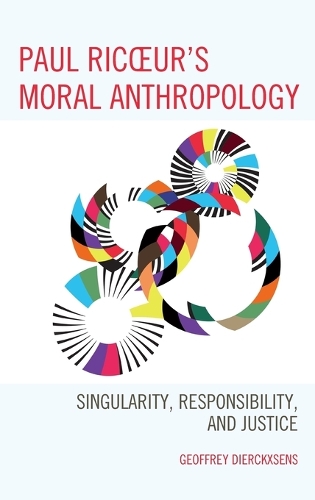
Paul Ricoeur's Moral Anthropology: Singularity, Responsibility, and Justice
(Hardback)
Available Formats
Publishing Details
Paul Ricoeur's Moral Anthropology: Singularity, Responsibility, and Justice
By (Author) Geoffrey Dierckxsens
Bloomsbury Publishing PLC
Lexington Books
20th December 2017
United States
Classifications
Professional and Scholarly
Non Fiction
170.92
Physical Properties
Hardback
266
Width 159mm, Height 237mm, Spine 23mm
517g
Description
Paul Ricurs Moral Anthropology is a guide for readers who are interested in Paul Ricurs thoughts on morals in general, bringing together the different aspects of what Geoffrey Dierckxsens understands as Ricurs moral anthropology. This anthropology addresses the question what it means to be human, capable of participating in moral life. Dierckxsens argues that Ricur shows that this participation implies being a self, living a singular lived existence with others and being responsible in institutions of justice. Through experiencing life one comes to learn taking moral decisions and the reasons for moral life. The wager of Ricurs hermeneutical approach to moral anthropology isso Dierckxsens arguesto understand moral life on the basis of the interpretation of lived existence, rather than on the basis of cultural or natural patterns only, like many contemporary moral theories in analytical philosophy. Ricurs moral anthropology is thus particularly timely in that it offers a critical argument against contemporary moral relativism and reductionism. By bringing together Ricurs moral anthropology, and recent moral theories this book offers a novel perspective on Ricurs already well-established moral theory. Dierckxsens moreover offers a critical perspective by arguing that we should revisit certain moral concepts in Ricurs moral anthropology and in contemporary moral theories in analytical philosophy. He evaluates certain concepts in Ricurs work, such as the concept of universal moral norms and how it stands against cultural differences in morals. He moreover interrogates certain ideas of contemporary analytical philosophy, such as the idea of cultural moral relativism and whether we can find a common morality across the cultural differences. By placing Ricurs ideas on moral life within the context of the contemporary scene of moral theory, this book contributes well to Studies in the Thought of Paul Ricur.
Author Bio
Geoffrey Dierckxsens is a post-doctoral researcher in the Institute of Philosophy at the Czech Academy of Sciences (CAS).
